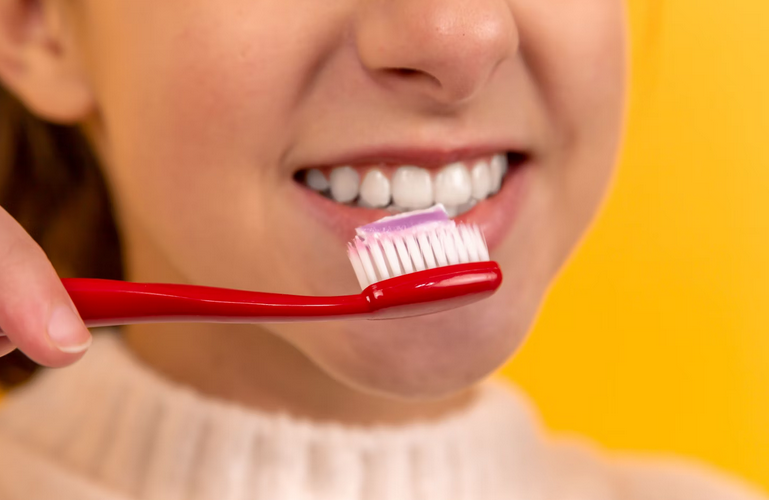When we think of taking care of our mental health, we often focus on therapy, exercise, or stress management techniques. But did you know that your mental well-being is also connected to your dental health? The relationship between mental health and oral care goes both ways—stress, anxiety, and depression can affect your teeth and gums, while poor dental health can, in turn, impact your mental state. So, let’s dive into how mental health and dental care are linked and what you can do to take care of both.
Stress and Teeth Grinding (Bruxism)
One of the most common ways stress and anxiety affect your teeth is through bruxism. When you’re stressed or anxious, you may clench your jaw or grind your teeth, especially during sleep. Over time, this can wear down tooth enamel, cause jaw pain, and even lead to cracked or chipped teeth. If you’re experiencing symptoms like jaw soreness, headaches, or tooth sensitivity, it could be a sign that you’re grinding your teeth. It’s a good idea to talk to your dentist about getting a night guard to protect your teeth and prevent further damage.
Gum Disease and Mental Health

Research shows that people with depression are more likely to develop gum disease, a condition where the gums become inflamed and may lead to tooth loss if untreated. Dentist London mentioned that the connection may be linked to a combination of factors, including poor oral hygiene, a weakened immune system, and the way mental health conditions affect our daily habits. Depression can make it harder to maintain a regular oral care routine, leading to plaque buildup and, eventually, gum disease. If you’ve been feeling low, overwhelmed, or disconnected, it might be time to revisit your dental routine and make sure you’re brushing and flossing regularly.
Anxiety and Dry Mouth
Anxiety can also affect your oral health by causing dry mouth, a condition where you don’t produce enough saliva. Saliva is essential for neutralizing acids in the mouth, washing away food particles, and protecting your teeth from decay. When anxiety triggers dry mouth, your risk of cavities, gum disease, and bad breath increases. If you suffer from dry mouth due to anxiety, try sipping water regularly, chewing sugar-free gum, or using a saliva substitute to keep your mouth moist. And, of course, talk to your dentist if dry mouth becomes a persistent issue.
Medication Side Effects and Oral Health
Many medications used to treat mental health conditions, such as antidepressants and anti-anxiety drugs, can have side effects that impact your oral health. As mentioned earlier, one common side effect is dry mouth, which can make it harder to maintain good dental hygiene. Other medications may cause gum sensitivity or even lead to teeth grinding as a side effect. If you’re taking medication for your mental health, it’s crucial to talk to your dentist about any potential oral side effects. Your dentist can help you find ways to manage these issues and keep your teeth and gums healthy while you take care of your mental well-being.
Self-Esteem and Dental Health

Mental health issues like anxiety or depression can affect how you feel about your appearance, including your smile. If you’re feeling self-conscious about your teeth, you might be less motivated to take care of them, leading to a cycle of poor oral hygiene and declining dental health. This can lead to a lack of confidence and further impact your mental health. If you’re struggling with self-esteem related to your dental health, talk to your dentist about cosmetic options that might help boost your confidence. Simple treatments like whitening, veneers, or alignment adjustments can make a big difference in how you feel about your smile—and how you care for your teeth in the future.
The Importance of a Holistic Approach to Care
When it comes to your mental and dental health, taking a holistic approach is key. It’s not just about treating your teeth or managing your mental health in isolation—it’s about recognizing that the two are connected and require attention together. Start by maintaining a consistent oral care routine—brushing, flossing, and visiting the dentist regularly. But also make sure to take care of your mental health by practicing stress management, seeking therapy or counseling when needed, and finding activities that help you relax.
If you’re struggling with mental health issues that are impacting your dental health, it’s essential to have open communication with both your dentist and mental health professional. Together, they can help you create a plan to manage the physical and emotional aspects of your well-being. For example, your dentist can help with solutions for teeth grinding, dry mouth, or gum disease, while your mental health professional can help you explore stress reduction techniques, cognitive behavioral therapy (CBT), or other strategies to improve your overall mental health.…

